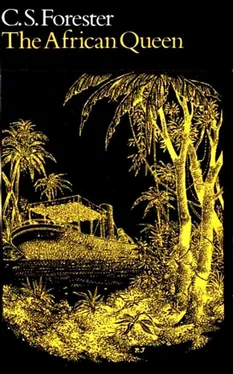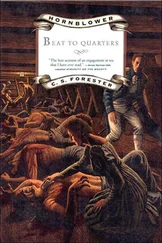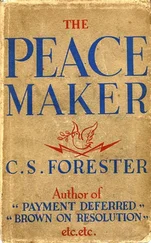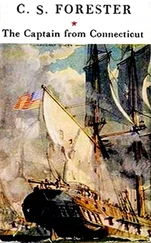‘What is that?’ asked Rose.
‘Gin, miss,’ said Allnutt. ‘An’ there’s only river water to drink it with.’
Rose’s knowledge of strong drink was quite hazy. The first time she had ever sat at a table where it was served had been in the Italian steamer; she remembered the polite amusement of the officers when she and her brother had stiffly refused to drink the purple-red wine which appeared at every meal. During her brother’s ministry in England she had heard drink and its evil effects discussed; there were even bad characters in the congregation who were addicted to it, and with whom she had sometimes tried to reason. At the mission Samuel had striven ineffectively for ten years to persuade his coloured flock to abandon the use of the beer they had been accustomed to brew from time immemorial—Rose knew how very ineffective his arguments had been. And there were festivals when everybody brewed and drank stronger liquors still, and got raging drunk, and made fearful noises, and all had sore heads the next morning, and not even the sore heads had reconciled Samuel to the backsliding of his congregation the night before.
And the few white men all drank, too—although up to this minute Rose, influenced by Samuel’s metaphorical description, had been under the impression that their tipple was a fearsome stuff called Rum, and not this innocent-appearing gin. Rum, and the formation of unhallowed unions with native women, and the brutal conscription of native labour, had been the triple-headed enemy Samuel was always in arms against. Now Rose found herself face to face with the first of these sins. Drink made men madmen. Drink rotted their bodies and corrupted their souls. Drink brought ruin in this world and damnation in the next.
Allnutt had filled the other mug over-side, and was now decanting water into the gin, trying carefully but not very effectively, to prevent too much river alluvium from entering his drink. Rose watched with increasing fascination. She wanted to protest, to appeal to Allnutt’s better feelings, even to snatch the terrible thing from him, and yet she stayed inert, unmoving. Possibly it was that common sense of hers which kept her quiescent. Allnutt drank the frightful stuff and smacked his lips.
‘That’s better,’ he said.
He put the mug down. He did not start being maniacal, nor to sing songs, nor to reel about the boat. Instead, with his sinfulness still wet on his lips he swung open the gates of Paradise for Rose.
‘Now I can think about supper,’ he said. ‘What about a cup o’ tea, miss?’
Tea! Heat and thirst and fatigue and excitement had done their worst for Rose. She was limp and weary and her throat ached. The imminent prospects of a cup of tea roused her to trembling excitement. Twelve cups of tea each Samuel and she had drunk daily for years. Today she had had none—she had eaten no food either, but at the moment that meant nothing to her. Tea! A cup of tea! Two cups of tea! Half a dozen great mugs of tea, strong, delicious, revivifying! Her mind was suffused with rosy pictures of an evening’s tea drinking, a debauch compared with which the spring sowing festivities at the village by the mission station were only a pale shade.
‘I’d like a cup of tea,’ she said.
‘Water’s still boiling in the engine,’ said Allnutt, heaving himself to his feet ‘Won’t take a minute.’
The tinned meat that they ate was, as a result of the heat, reduced to a greasy semi-liquid mass. The native bread was dark and unpalatable. But the tea was marvellous. Rose was forced to use sweetened condensed milk in it, which she hated—at the mission they had cows until von Hanneken commandeered them—but not even that spoilt her enjoyment of the tea. She drank it strong, mug after mug of it, as she had promised herself, with never a thought of what it was doing inside her to the lining of her stomach; probably it was making as pretty a picture of that as ever she had seen at a Band of Hope lantern lecture where they exhibited enlarged photographs of a drunkard’s liver. She gulped down mug after mug. For a moment her body temperature shot up to fever heat, but presently there came a blissful perspiration—not the sticky, prickly sweat in which she moved all day long, but a beneficent and cooling fluid, bringing with it a feeling of ease and well-being.
‘Those Belgians up at the mine wouldn’t never drink tea,’ said Allnutt, tilting the condensed milk tin over his mug of black liquid. ‘They didn’t know what was good.’
‘Yes,’ said Rose. She felt positive friendship for Allnutt welling up within her. She slapped at the mosquitoes without irritation.
When the scanty crockery had been washed and put away Allnutt stood up and looked about him; the light was just failing.
‘Ain’t seen no crocodiles in this arm, miss, ’ave you?’ he asked.
‘No,’ said Rose.
‘No shallows for ’em ’ere,’ said Allnutt. ‘And current’s too fast.’
He coughed a little self-consciously.
‘I want to ’ave a bath before bedtime,’ he said.
‘So do I.’
‘I’ll go up in the bows an’ ’ave mine ’olding on to the anchor chain,’ said Allnutt. ‘You stay down ’ere and do what you like, miss. Then if we don’t look it won’t matter.’
Rose found herself stripping herself naked right out in the open, with only a dozen feet away a man doing the same, and only a slender funnel six inches thick between them. Somehow it did not matter. Rose was conscious that out of the tail of her eye she could see a greyish-white shape lower itself over the launch’s bows, and she could hear prodigious kickings and splashings as Allnutt took his bath. She sat naked on the low gunwale in the stern and lowered her legs into the water. The fast current boiled round them, deliriously cool, tugging at her ankles, insidiously luring her farther. She slipped over completely, holding on to the boat, trailing her length on the surface of the water. It was like Paradise—ever so much better than her evening bath at the mission, in a shallow tin trough of lukewarm water, and obsessed with the continual worry lest the unceasing curiosity of the natives should cause prying eyes to be peering at her through some chink or crevice in the walls.
Then she began to pull herself out. It was not easy, what with the pull of the current and the height of the gunwale, but a final effort of her powerful arms drew her up far enough to wriggle at last over the edge. Only then did she realize that she had been quite calmly contemplating calling to Allnutt for assistance, and she felt that she ought to be disgusted with herself, but she could not manage it. She fished a towel out of her tin box of clothes and dried herself, and dressed again. It was almost dark by now, dark enough, anyway, for a firefly on the bank to be visible, and for the noises of the forest to have stilled so much that the sound of the river boiling along the banks seemed to have grown much louder.
‘Are you ready, miss?’ called Allnutt, starting to come aft.
‘Yes,’ said Rose.
‘You better sleep ’ere in the stern,’ said Allnutt, ‘case it rains. I got a couple of rugs ’ere. There ain’t no fleas in ’em.’
‘Where are you going to sleep?’
‘For’rard, miss. I can make a sort of bed out o’ them cases.’
‘What, on the—the explosives?’
‘Yerss, miss. Won’t do it no ’arm.’
That was not what had called for the question. To Rose there seemed something against nature in the idea of actually sleeping on a couple of hundredweights of explosive, enough to lay a city in ruins—or to blow in the side of a ship. But she thrust the strangeness of the thought out of her mind; everything was strange now.
‘All right,’ she said, briefly.
‘You cover up well,’ said Allnutt, warningly. ‘It gets nearly cold on the river towards morning—look at the mist now.’
Читать дальше












